It’s not hard to see the appeal of Observation and get lured in by the promise of its premise. It’s an eerie space thriller which turns the traditional trope of an evil AI on its head. You’re not running from the AI. Instead, you are SAM, the AI, and you want to help the human who now finds herself adrift in a badly-damaged space station.
Throw in a slick teaser trailer and bring on a well-respected publisher of indie games with a flair for the dramatic and there is a lot to look forward to in Observation.
Now that the game is here, however, does it live up to the possibility it promised?
There is a whole lot to like about what Observation brings to the table. Without diving too far into spoilers, it doesn’t take long to notice there is more at play than meets the eye, and the heroine, Emma, may not be able to trust the AI you’re playing as.
Because of corrupted data, even you aren’t entirely sure why you are doing what you are doing, or how Emma came to be an (apparent) lone survivor.
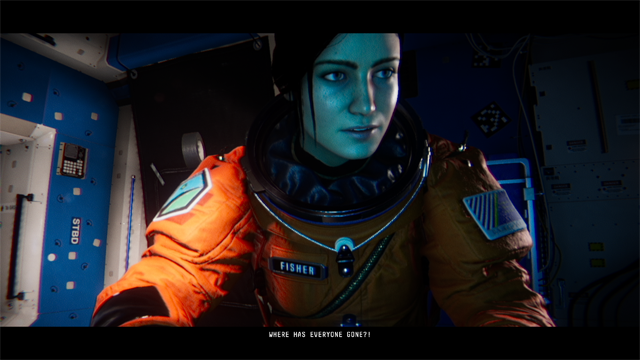
The game’s presentation is excellent. In a style akin to Five Nights at Freddy’s, a majority of the game’s interactive elements come from switching between and manipulating cameras scattered around the station.
The cameras serve as SAM’s eyes, but also to an extent, the AI’s hands as well. New data and functionalities are unlocked by locating technology on a camera and reestablishing a link with SAM’s mainframe.
After a while, you also unlock a self-propelling sphere which allows SAM to send a functional camera around the station free from the tyranny of fixed positions. Overall, it strikes a nice balance between providing fulfilling gameplay while still using limitations to increase tensions.
Unfortunately, not everything about Observation is so masterfully executed. For every great element or feature which does everything it can to pull you in, there’s something else waiting just around the corner to bring you nothing but irritation.
To misquote Sir Mix-a-Lot, I have big buts, and I can not lie.
There’s a Great Story Waiting to Be Told
While the overall experience of Observation is often one of frustration, it’s not for want of positive attributes. If anything, the signs of a truly great game lurking within only make it more of a bother when things don’t come off right. That’s because when things are going right, they are going very, very right.
The Station Is Everything You Want in a Space Thriller
When setting the right mood for a game, it helps to start with a backdrop which is well-executed. Observation delivers and then some. The space station’s interiors are just cramped enough — and the lighting just insufficient in the right spaces — to make you feel like you’re really onboard a failing station.
This is amplified when you gain access to the sphere and can begin moving throughout the tight passageways, and even more so when you get a chance to leave the station to see it floating in orbit.
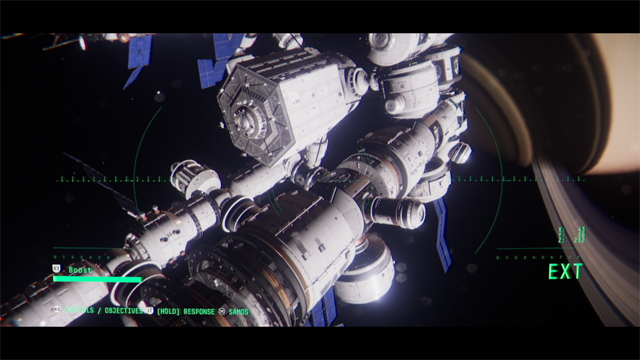
The Story Telling is On Point
As the plot of Observation begins to unfold before you, it’s quickly apparent that a great deal of care went into creating Observation‘s story. As more twists and turns unfurl, there is nothing more you’ll want than to keep progressing forward to see what’s waiting around the next corner.
It’s easy to get lost in Observation and talk yourself into going just a bit further to see the next piece of the plot.
But…
Progression Feels Like a Chore
For as much as the game makes you want to keep going, too often that is easier said than done.
There is nothing wrong with a game being “difficult.” Some of the most popular modern titles rely on steep learning curves and the satisfaction which comes from finally slaying that one big bad that’s been haunting you for an hour.
Unfortunately, struggles in Observation rarely feel like the game is laying out a difficult task. Instead, my experience involved several periods of aimlessly hopping from camera to camera, or floating around the ship, in search of a vaguely explained goal.
The Controls Are the Real Disaster
Emma should pity you. Sure, she’s the one who finds herself living an astronaut’s nightmare but at least she’s not the one trying to control things onboard the station. My frustrations with Observation first showed up before I even started playing the game.
The first time I loaded the game up it hijacked my cursor, instantly moving it back to dead center with every new frame. Even alt-tabbing out of the game or force-closing the game couldn’t help. I ultimately had to perform a hard restart of my entire computer to break the cycle.
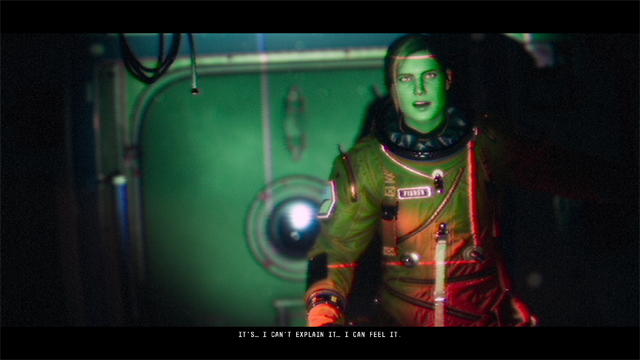
When I booted it back up again, I had control of my cursor, which turned out to be only a minor improvement. The sensitivity was so high that the lightest touch of my mouse or thumbstick sent the cursor flying across half the screen.
When I finally managed to corral it enough times to access the sensitivity controls, it became apparent there were only two options: settle on it being so insensitive it barely moved or settling one notch above, where it was too fast about half the time.
I opted for the latter, but it was still far from ideal. Regularly, I would watch my cursor bounce from below a response button to above it with a minor touch. I was forced to rely on 45-degree angles to keep the pointer from endlessly sliding over the entire selection.
The control issues continued when I unlocked the self-propelling unit. When it was working, the unit provided an immersive experience as I drifted through the different pods. When it wasn’t working, the pod was a nausea-inducing nightmare where overly drifty controls led to bumpy rides aplenty.
Confusion Abounds if You Go Off the Rails
You are often given a strong indicator of where to go when Emma assigns you a new task. As long as you catch the initial indicator and follow it, things can go relatively swimmingly. The problem comes if you make a mistake and miss a step.
Although there is an option to ask Emma what your current task is, her responses only provide a surface-level explanation, and the next step to accomplish that goal isn’t always clear.
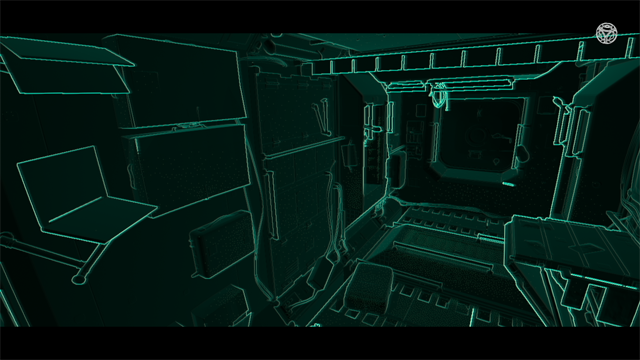
In one particularly frustrating instance — during my first foray outside of the station — I was tasked with finding a particular pod and repairing its clamps. After leaving the ship for the first time, I took a moment to look around at the truly beautifully designed scene in front of me.
Whether or not I was originally pointing at the right pod before taking in the sights or if I was always doomed to wander I’m not sure. Regardless, the end result was Emma insisting I get to Pod 3 while I looked at the ship with no exterior map to guide me.
Combined with the game’s iffy handling, it led to a momentum-killing slog of looking for numbers and trying to follow them to Pod 3. It was exacerbated by piloting a sphere which took my commands as suggestions more than orders. The excitement of my first “space walk” instantly became a source of frustration.
Sometimes More Isn’t Better
Minigames abound around the station. From overriding hatch commands to securing the clamps holding different sections together, there are many different prompts and games to follow.
But just how many engaging minigames can you create while still trying to have them feel real within a space station setting?
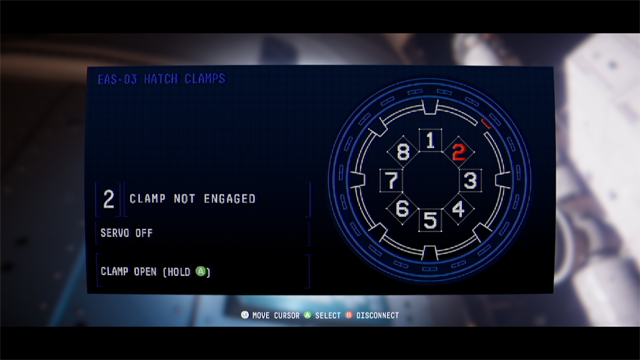
Fewer than the designers tried to, apparently. Although there are occasional exceptions, Observation‘s challenges generally fall flat. The problem is only compounded by sketchy controls and often vague — or entirely absent —explanations of what you’re expected to do.
Converting some of the challenges to simple button presses may have provided “less” gameplay, but it would have provided more enjoyment.
Too Many Bugs Spoil the Fun
Finally, my experience with Observation felt more like a look at a beta version than a game about to hit full release. In addition to the issues with the center-locked cursor, which occurred twice, I also repeatedly encountered troubles with the rumble feature when using a controller.
Once an event triggered a rumble it wouldn’t stop until the controller was unplugged, or I paused the game.
At one point, I located an important piece of technology and added it to SAM’s database before I was prompted to do so. When the prompt came, I simply progressed through it to the next segment. It was through the door I had already opened.
Only the message telling me to use the schematic refused to go away. It obscured other important elements until I finally went back into the station and performed a totally useless action on the already-open door.
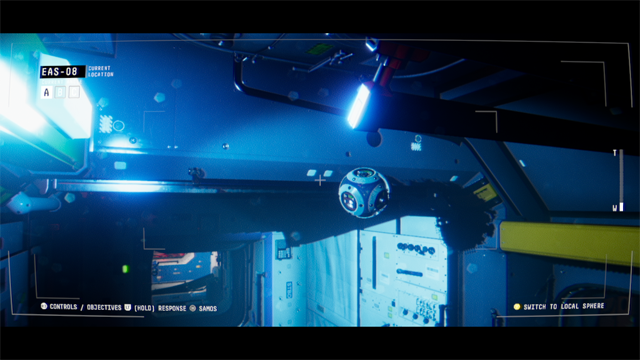
The Final Frontier
Pros
- The station is beautifully realized
- Excellent use of lighting and sound builds suspense
- An engaging story draws you in and keeps you playing
Cons
- Wonky controls make it difficult to navigate
- Unclear directives can result in wasteful wandering
- Quantity over quality approach to minigames yields mixed results
Observation is one of the most disappointing games I have played in recent years. It’s not just because of the game’s failings, but also because of what it does so well.
Playing Observation, I can’t help feeling like the game could have been truly fantastic with just a bit more mechanical fine-tuning. Trimming some of the game’s more superfluous elements would have helped, too.
While other players may get more mileage out of Observation, particularly players who manage to stay on rails at a higher rate, the risk of hopelessly seeking out the next step remains for any player who misses a step. If you can weather the game’s shortcomings to see its plot, there’s fun to be had, but that remains a very big if.
[Note: A copy of Observation was provided by Devolver Digital for the purpose of this review.]

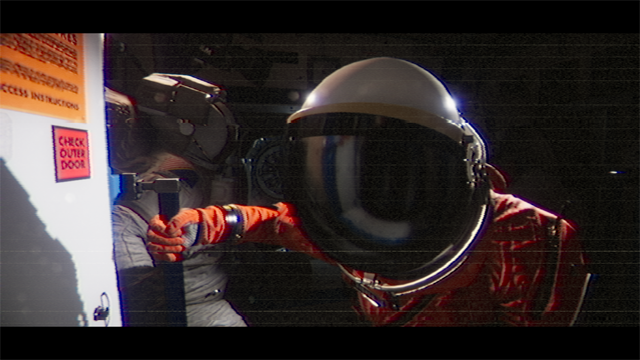





Published: May 20, 2019 08:57 pm